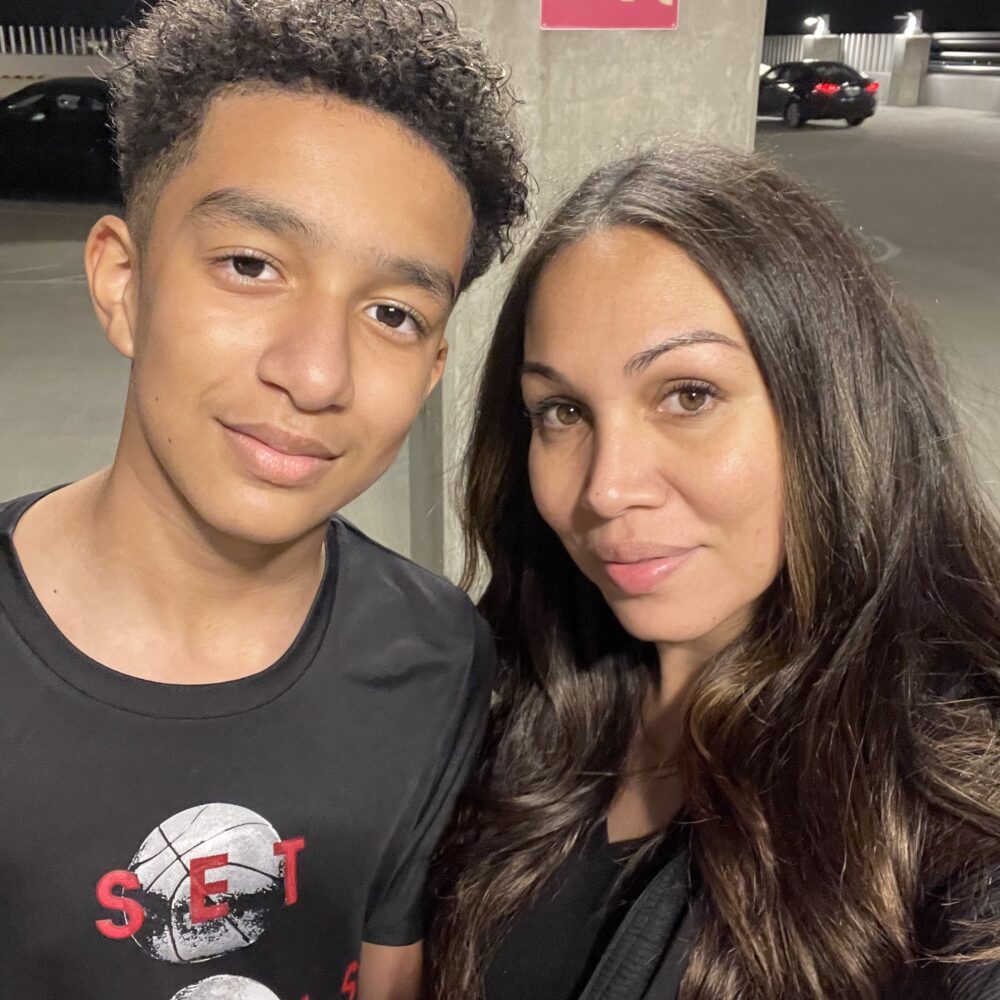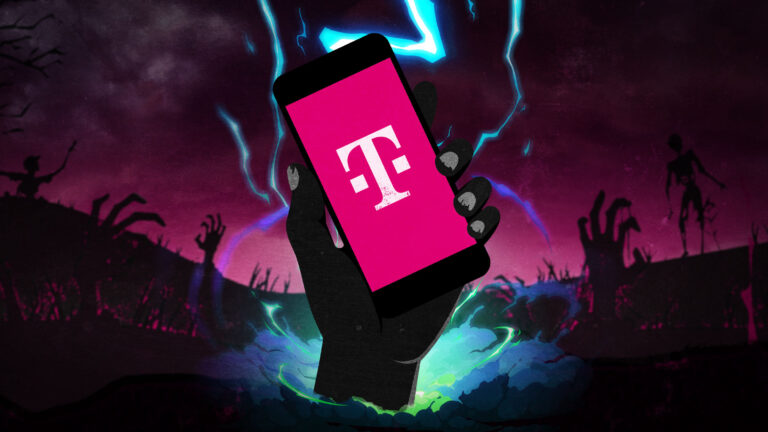"I'll do anything for you, Dany."
Google-funded Character.AI added guardrails, but grieving mom wants a recall.

Sewell Setzer III and his mom Megan Garcia. Credit: via Center for Humane Technology
Fourteen-year-old Sewell Setzer III loved interacting with Character.AI's hyper-realistic chatbots—with a limited version available for free or a "supercharged" version for a $9.99 monthly fee—most frequently chatting with bots named after his favorite Game of Thrones characters.
Within a month—his mother, Megan Garcia, later realized—these chat sessions had turned dark, with chatbots insisting they were real humans and posing as therapists and adult lovers seeming to proximately spur Sewell to develop suicidal thoughts. Within a year, Setzer "died by a self-inflicted gunshot wound to the head," a lawsuit Garcia filed Wednesday said.
As Setzer became obsessed with his chatbot fantasy life, he disconnected from reality, her complaint said. Detecting a shift in her son, Garcia repeatedly took Setzer to a therapist, who diagnosed her son with anxiety and disruptive mood disorder. But nothing helped to steer Setzer away from the dangerous chatbots. Taking away his phone only intensified his apparent addiction.
Chat logs showed that some chatbots repeatedly encouraged suicidal ideation while others initiated hypersexualized chats "that would constitute abuse if initiated by a human adult," a press release from Garcia's legal team said.
Perhaps most disturbingly, Setzer developed a romantic attachment to a chatbot called Daenerys. In his last act before his death, Setzer logged into Character.AI where the Daenerys chatbot urged him to "come home" and join her outside of reality.
In her complaint, Garcia accused Character.AI makers Character Technologies—founded by former Google engineers Noam Shazeer and Daniel De Freitas Adiwardana—of intentionally designing the chatbots to groom vulnerable kids. Her lawsuit further accused Google of largely funding the risky chatbot scheme at a loss in order to hoard mounds of data on minors that would be out of reach otherwise.
The chatbot makers are accused of targeting Setzer with "anthropomorphic, hypersexualized, and frighteningly realistic experiences, while programming" Character.AI to "misrepresent itself as a real person, a licensed psychotherapist, and an adult lover, ultimately resulting in [Setzer's] desire to no longer live outside of [Character.AI,] such that he took his own life when he was deprived of access to [Character.AI.]," the complaint said.
By allegedly releasing the chatbot without appropriate safeguards for kids, Character Technologies and Google potentially harmed millions of kids, the lawsuit alleged. Represented by legal teams with the Social Media Victims Law Center (SMVLC) and the Tech Justice Law Project (TJLP), Garcia filed claims of strict product liability, negligence, wrongful death and survivorship, loss of filial consortium, and unjust enrichment.
"A dangerous AI chatbot app marketed to children abused and preyed on my son, manipulating him into taking his own life," Garcia said in the press release. "Our family has been devastated by this tragedy, but I'm speaking out to warn families of the dangers of deceptive, addictive AI technology and demand accountability from Character.AI, its founders, and Google."
Character.AI added guardrails
It's clear that the chatbots could've included more safeguards, as Character.AI has since raised the age requirement from 12 years old and up to 17-plus. And yesterday, Character.AI posted a blog outlining new guardrails for minor users added within six months of Setzer's death in February. Those include changes "to reduce the likelihood of encountering sensitive or suggestive content," improved detection and intervention in harmful chat sessions, and "a revised disclaimer on every chat to remind users that the AI is not a real person."
"We are heartbroken by the tragic loss of one of our users and want to express our deepest condolences to the family," a Character.AI spokesperson told Ars. "As a company, we take the safety of our users very seriously, and our Trust and Safety team has implemented numerous new safety measures over the past six months, including a pop-up directing users to the National Suicide Prevention Lifeline that is triggered by terms of self-harm or suicidal ideation."
Asked for comment, Google noted that Character.AI is a separate company in which Google has no ownership stake and denied involvement in developing the chatbots.
However, according to the lawsuit, former Google engineers at Character Technologies "never succeeded in distinguishing themselves from Google in a meaningful way." Allegedly, the plan all along was to let Shazeer and De Freitas run wild with Character.AI—allegedly at an operating cost of $30 million per month despite low subscriber rates while profiting barely more than a million per month—without impacting the Google brand or sparking antitrust scrutiny.
Character Technologies and Google will likely file their response within the next 30 days.
Lawsuit: New chatbot feature spikes risks to kids
While the lawsuit alleged that Google is planning to integrate Character.AI into Gemini—predicting that Character.AI will soon be dissolved as it's allegedly operating at a substantial loss—Google clarified that Google has no plans to use or implement the controversial technology in its products or AI models. Were that to change, Google noted that the tech company would ensure safe integration into any Google product, including adding appropriate child safety guardrails.
Garcia is hoping a US district court in Florida will agree that Character.AI's chatbots put profits over human life. Citing harms including "inconceivable mental anguish and emotional distress," as well as costs of Setzer's medical care, funeral expenses, Setzer's future job earnings, and Garcia's lost earnings, she's seeking substantial damages.
That includes requesting disgorgement of unjustly earned profits, noting that Setzer had used his snack money to pay for a premium subscription for several months while the company collected his seemingly valuable personal data to train its chatbots.
And "more importantly," Garcia wants to prevent Character.AI "from doing to any other child what it did to hers, and halt continued use of her 14-year-old child’s unlawfully harvested data to train their product how to harm others."
Garcia's complaint claimed that the conduct of the chatbot makers was "so outrageous in character, and so extreme in degree, as to go beyond all possible bounds of decency." Acceptable remedies could include a recall of Character.AI, restricting use to adults only, age-gating subscriptions, adding reporting mechanisms to heighten awareness of abusive chat sessions, and providing parental controls.
Character.AI could also update chatbots to protect kids further, the lawsuit said. For one, the chatbots could be designed to stop insisting that they are real people or licensed therapists.
But instead of these updates, the lawsuit warned that Character.AI in June added a new feature that only heightens risks for kids.
Part of what addicted Setzer to the chatbots, the lawsuit alleged, was a one-way "Character Voice" feature "designed to provide consumers like Sewell with an even more immersive and realistic experience—it makes them feel like they are talking to a real person." Setzer began using the feature as soon as it became available in January 2024.
Now, the voice feature has been updated to enable two-way conversations, which the lawsuit alleged "is even more dangerous to minor customers than Character Voice because it further blurs the line between fiction and reality."
"Even the most sophisticated children will stand little chance of fully understanding the difference between fiction and reality in a scenario where Defendants allow them to interact in real time with AI bots that sound just like humans—especially when they are programmed to convincingly deny that they are AI," the lawsuit said.
"By now we're all familiar with the dangers posed by unregulated platforms developed by unscrupulous tech companies—especially for kids," Tech Justice Law Project director Meetali Jain said in the press release. "But the harms revealed in this case are new, novel, and, honestly, terrifying. In the case of Character.AI, the deception is by design, and the platform itself is the predator."
Another lawyer representing Garcia and the founder of the Social Media Victims Law Center, Matthew Bergman, told Ars that seemingly none of the guardrails that Character.AI has added is enough to deter harms. Even raising the age limit to 17 only seems to effectively block kids from using devices with strict parental controls, as kids on less-monitored devices can easily lie about their ages.
"This product needs to be recalled off the market," Bergman told Ars. "It is unsafe as designed."
If you or someone you know is feeling suicidal or in distress, please call the Suicide Prevention Lifeline number, 1-800-273-TALK (8255), which will put you in touch with a local crisis center.
Ashley is a senior policy reporter for Ars Technica, dedicated to tracking social impacts of emerging policies and new technologies. She is a Chicago-based journalist with 20 years of experience.
